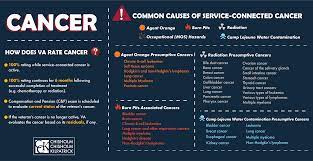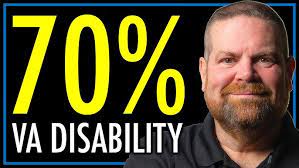Veterans Disability Help: Navigating the Process
When veterans return home from serving their country, they often face a new set of challenges. For some, these challenges include physical or mental disabilities that make it difficult to adjust to civilian life. Fortunately, there is help available for veterans who are struggling with disabilities related to their service.
The Veterans Administration (VA) offers disability compensation to veterans who have been injured or become ill as a result of their military service. This compensation can help veterans cover medical expenses and other costs associated with their disability.
However, navigating the process of applying for disability compensation can be complicated and overwhelming. Here are some tips to help veterans get the assistance they need:
- Gather all relevant documentation: To apply for disability compensation, veterans will need to provide documentation about their military service and any injuries or illnesses they have sustained. This may include medical records, service records, and other documents.
- Seek out assistance: There are many organizations that offer assistance to veterans who are applying for disability compensation. These organizations can help veterans understand the process and provide guidance on how to fill out the necessary paperwork.
- Be patient: The process of applying for disability compensation can take time. It is important for veterans to be patient and persistent in pursuing their claim.
- Consider appealing a denied claim: If a veteran’s claim is denied, they have the option to appeal the decision. It is important for veterans to understand their rights in this process and seek out assistance if necessary.
- Take care of yourself: Dealing with a disability can be stressful and challenging. It is important for veterans to take care of themselves both physically and mentally during this time.
In conclusion, if you are a veteran struggling with a disability related to your military service, know that there is help available. By understanding the process of applying for disability compensation and seeking out assistance when needed, you can get the support you need to move forward. Thank you for your service, and best of luck in your journey towards recovery.
Top 5 FAQs on Veterans Disability Benefits: Your Ultimate Guide
- How do I apply for veterans disability benefits?
- What types of veterans disability benefits are available?
- Are there any special programs or services available to veterans with disabilities?
- How long does it take to receive a decision on my veterans disability claim?
- What documents do I need to provide when applying for veterans disability benefits?
How do I apply for veterans disability benefits?
To apply for veterans disability benefits, you can follow these steps:
- Gather your military and medical records: You will need to provide documentation of your military service and any injuries or illnesses related to your service.
- Fill out an application: You can apply for disability benefits online through the VA’s eBenefits portal or by filling out a paper application (VA Form 21-526EZ) and submitting it by mail.
- Submit your application: Once you have completed your application, submit it to the VA along with any necessary supporting documentation.
- Attend a medical exam: The VA may require you to attend a medical exam to evaluate your disability and determine the level of compensation you are eligible for.
- Wait for a decision: After submitting your application, it may take several months for the VA to review and process your claim. You can check the status of your claim online through the eBenefits portal or by contacting the VA directly.
If your claim is approved, you will receive a notification letter outlining the level of compensation you are eligible for. If your claim is denied, you have the option to appeal the decision through a formal appeals process.
It is important to note that applying for veterans disability benefits can be a complicated process, and many veterans choose to seek out assistance from organizations that specialize in helping with these applications. These organizations can provide guidance on filling out paperwork, gathering necessary documentation, and navigating the appeals process if necessary.
What types of veterans disability benefits are available?
There are several types of veterans disability benefits available to those who have served in the military and have sustained injuries or illnesses related to their service. Here are some of the most common types of benefits:
- Disability compensation: This is a tax-free monetary benefit paid to veterans who have sustained a service-related injury or illness. The amount of compensation is based on the severity of the disability and how much it affects the veteran’s ability to work.
- Special monthly compensation: This is an additional benefit paid to veterans who have specific disabilities, such as loss of use of a limb or blindness, that require special assistance or care.
- Dependency and Indemnity Compensation (DIC): This benefit is paid to surviving spouses, children, and parents of veterans who died as a result of their service-connected disability.
- Veterans Pension: This is a tax-free monetary benefit paid to low-income wartime veterans or their surviving spouses.
- Vocational Rehabilitation and Employment (VR&E): This program provides assistance to veterans with service-connected disabilities who want to find and maintain employment.
- Aid and Attendance (A&A): This benefit provides financial assistance to veterans and their surviving spouses who need help with activities of daily living, such as bathing, dressing, and eating.
It’s important for veterans to understand their eligibility for these benefits and how to apply for them. The process can be complicated, so seeking out assistance from organizations that specialize in helping veterans navigate the system can be helpful.
Are there any special programs or services available to veterans with disabilities?
Yes, there are special programs and services available to veterans with disabilities. The Department of Veterans Affairs (VA) offers a range of benefits and services to help veterans with disabilities, including:
- Disability compensation: As mentioned earlier, the VA offers disability compensation to veterans who have sustained injuries or illnesses related to their military service.
- Vocational rehabilitation: The VA’s Vocational Rehabilitation and Employment program provides assistance to veterans with service-connected disabilities who want to enter or re-enter the workforce.
- Adaptive housing: The VA offers grants for disabled veterans to modify their homes or purchase adapted homes that meet their specific needs.
- Assistive technology: The VA provides assistive technology devices and services to help veterans with disabilities perform daily activities more easily.
- Health care: The VA provides comprehensive health care services for eligible veterans, including those with service-connected disabilities.
- Education and training: The VA offers education and training benefits for eligible veterans, including those with disabilities.
- Life insurance: Disabled veterans may be eligible for life insurance through the VA’s Service-Disabled Veterans Insurance program.
These are just a few examples of the programs and services available to veterans with disabilities through the VA. It is important for disabled veterans to explore all of their options and seek out assistance when needed in order to access these benefits and services.
How long does it take to receive a decision on my veterans disability claim?
The length of time it takes to receive a decision on a veterans disability claim can vary depending on several factors.
First, the complexity of the claim can impact the timeline. Claims that involve multiple disabilities or require additional evidence may take longer to process.
Second, the workload of the VA and its regional offices can also impact processing times. If there is a backlog of claims or an increase in claims being filed, it may take longer for your claim to be processed.
Third, if additional information is needed or if there are errors in your application, this can also cause delays in processing.
That being said, the VA has set goals for processing disability claims within certain time frames. For example, they aim to process claims within 125 days with a 98% accuracy rate. However, these are goals and not guarantees.
In general, it can take anywhere from several months to over a year to receive a decision on your veterans disability claim. It is important to be patient and persistent during this process and to seek out assistance if you have any questions or concerns about your claim.
What documents do I need to provide when applying for veterans disability benefits?
When applying for veterans disability benefits, you will need to provide the following documents:
- DD Form 214: This is your Certificate of Release or Discharge from Active Duty. It shows your military service dates and discharge status.
- Medical Records: You will need to provide medical records that show evidence of your disability, including diagnosis, treatment history, and any related medical tests or evaluations.
- Service Treatment Records: If you were treated for your disability while on active duty, you will need to provide these records.
- Dependency Records: If you have dependents (spouse, children, parents), you will need to provide their birth certificates and/or marriage certificates as proof of relationship.
- VA Forms: You will need to complete several VA forms when applying for benefits, including VA Form 21-526EZ (Application for Disability Compensation and Related Compensation Benefits) and VA Form 21-4142 (Authorization to Disclose Information to the Department of Veterans Affairs).
- Additional Supporting Documents: Depending on your individual circumstances, you may be required to provide additional supporting documents such as Social Security Administration (SSA) award letters or employment records.
It is important to note that the documentation requirements may vary depending on the specific nature of your claim and the type of benefits you are seeking. It is always best to consult with a Veterans Service Officer or other qualified professional for guidance on what documentation is needed for your particular situation.



